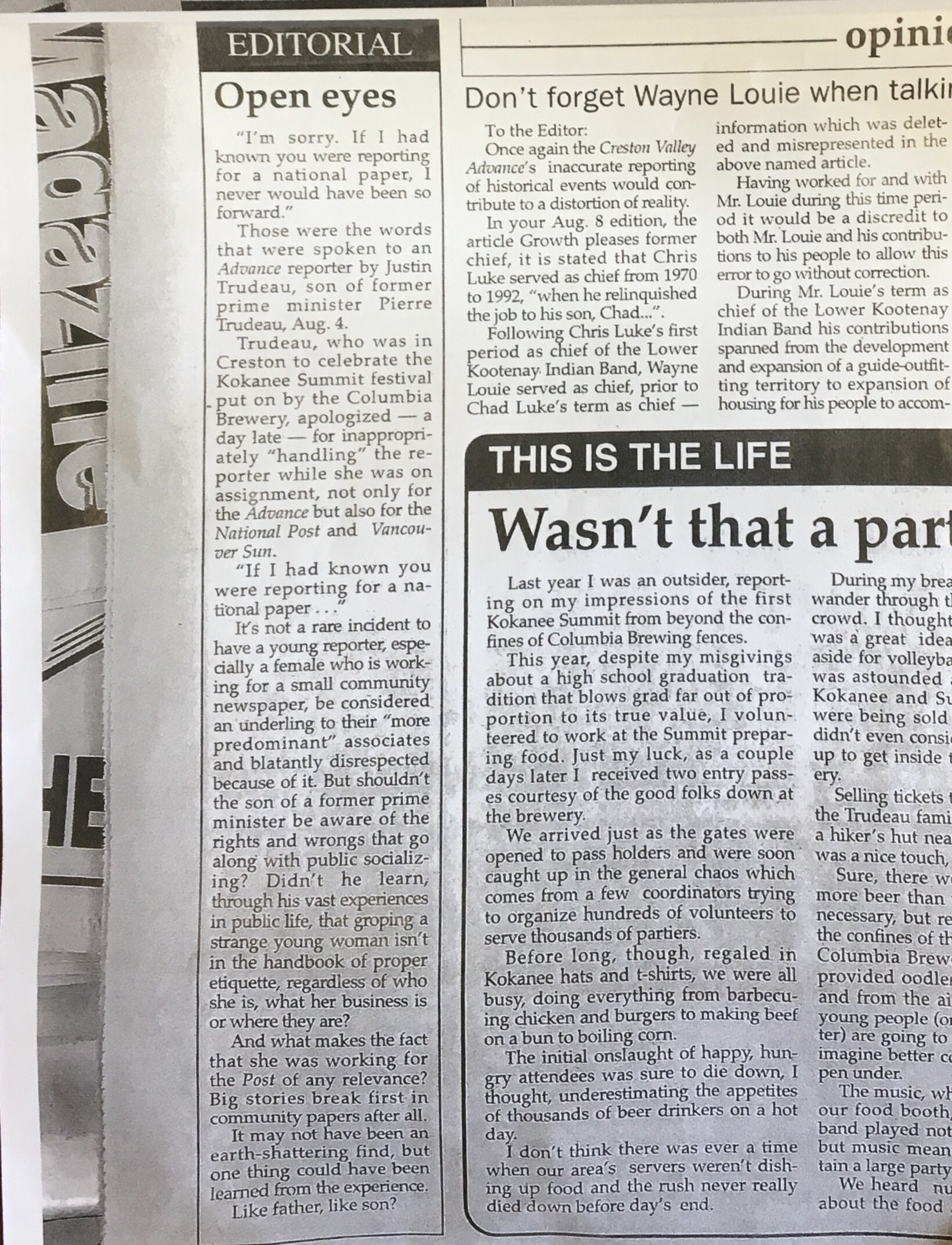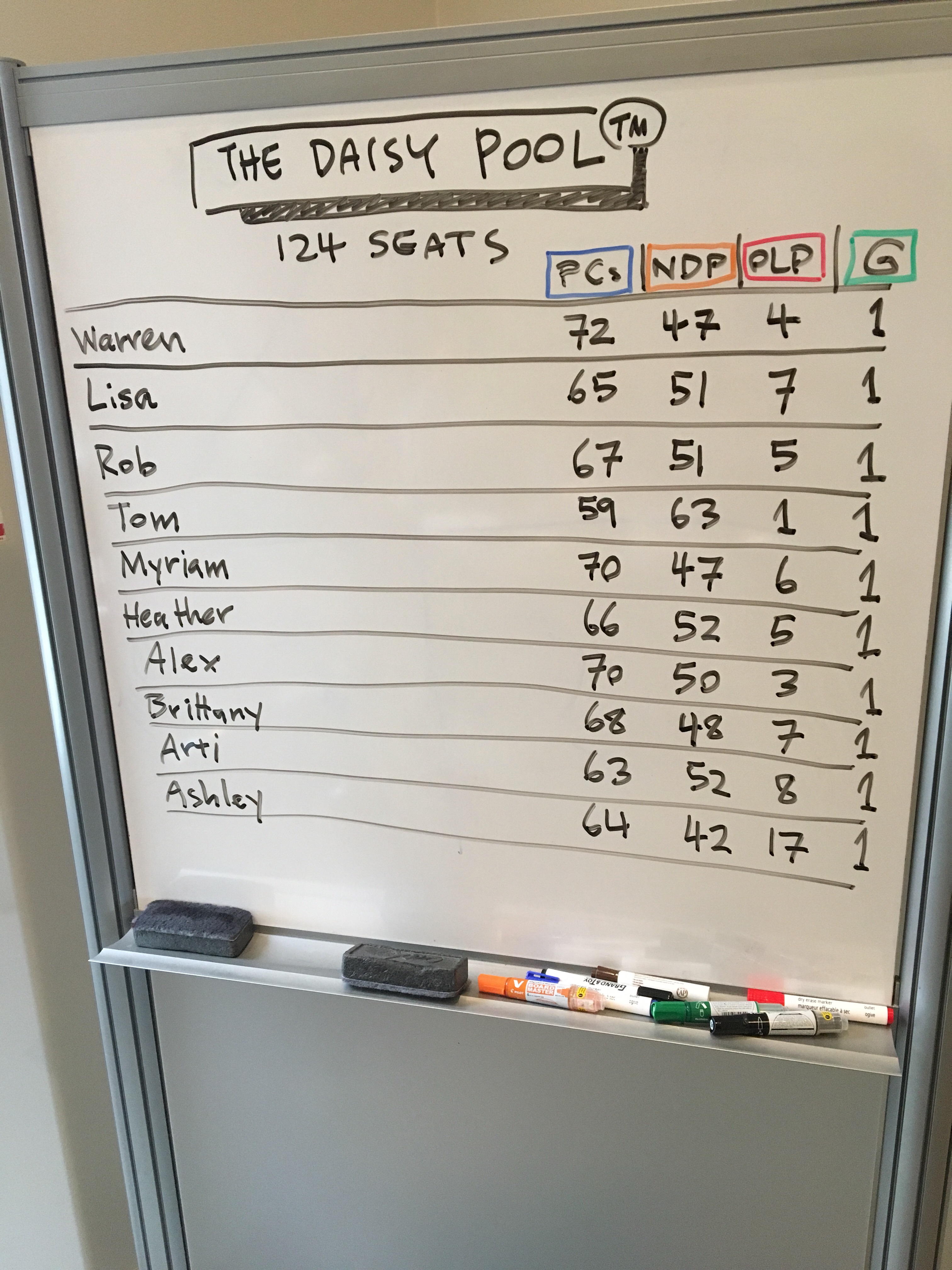Daisy Group spotted in Drogheda, Ireland!


Then again, maybe they can.
.@JustinTrudeau’s relationship with @realDonaldTrump was always going to reach this nadir: Trump is a dishonest, disgusting thug. No campaign of servility was ever going to change that. But now that it has, every Canadian should rally to Trudeau’s side. #cdnpoli #USPolitics
— Warren Kinsella (@kinsellawarren) June 10, 2018
About this bullshit.
Let’s see if they publish it. I’m not holding my breath.
In her June 8, 2018 news story, ‘Between the smiles, mounting tensions between Trudeau and Trump,” your Catherine Porter goes to considerable lengths to insinuate that a report about Mr. Trudeau “handling” a young reporter in British Columbia in August 2000 only surfaced as part of some ill-defined conspiracy by pro-Trump forces. In this, she is flatly wrong, and I would know.
The article, from the Creston Valley Advance, was sent to me – an author, a former Hillary Clinton volunteer and a one-time Special Assistant to another Canadian Liberal Prime Minister, Jean Chretien – last Wednesday evening. It was sent to me by a Canadian Member of Parliament who requested anonymity. I agreed to give it.
I investigated the report. The eighteen-year-old article was authentic. It stated as a fact that that Mr. Trudeau, years before he himself became a Member of Parliament, “handled” a young female reporter at a local festival. The article further stated that Mr. Trudeau had apologized for his conduct, quoting him as saying he wouldn’t have done it “if I had known you were reporting for a national paper.”
When I published the editorial and my own commentary on my web site – just two monosyllabic words, “Um, what?” – I was not doing so as a tool of Breitbart (as Ms. Porter insinuates) or because I was “a well-known critic of Mr. Trudeau” (as Ms. Porter states).
I was doing so because I have been very active in promoting the stories of Canadian women who have raised their voices in the #MeToo moment. I did so because, as noted, I considered the notion that our Prime Minister had allegedly sexually assaulted a woman to be, as noted, quite newsworthy.
If your Ms. Porter had bothered to make the merest effort to seek my comment, I would have told her all that. She however made no such effort whatsoever. Instead, she published a misleading and dishonest account.
I have been an active Canadian Liberal and am still a Hillary Clinton supporter. The notion that I would re-publish such a report to further the interests of “the ideological champions of Mr. Trump” is outrageous and flatly wrong.
I published the story because it was authentic and it was news.
Two considerations, clearly, that matter less to your Ms. Porter.
Sincerely,
Warren Kinsella, LL.B
Privilege in this communication is not waived.
Tweets for you to clip and save:
Back on Pearson free wi-if! Howdy, CSIS and NSA folks, working overtime on a Friday eve!
— Warren Kinsella (@kinsellawarren) June 9, 2018
People who have long and clingy hugs in airports? That will be banned when I am running this fucking place.
— Warren Kinsella (@kinsellawarren) June 9, 2018
Also: unwanted inadvertent touching by total strangers. That will be a capital offence in Warrenland.
— Warren Kinsella (@kinsellawarren) June 9, 2018
For my next business trip, I intend to use my wheeled Dora the Explorer bag as my carry-on, with pride.
— Warren Kinsella (@kinsellawarren) June 9, 2018
I think this is the international symbol for “watch out for people in wheelchairs doing jumps over your children” pic.twitter.com/BeWpasHXGt
— Warren Kinsella (@kinsellawarren) June 9, 2018
If I worked here, I’d drive this sucker like a maniac, and I wouldn’t give old people rides pic.twitter.com/JXo5GbS5HB
— Warren Kinsella (@kinsellawarren) June 9, 2018
There’s an excellent chance half the women on our plane to Dublin are nuns in civilian clothing
— Warren Kinsella (@kinsellawarren) June 9, 2018
As part of my personal contribution to the straws in oceans crisis, I drank my Cherry Coke without one and now I look like I drooled all over myself
— Warren Kinsella (@kinsellawarren) June 9, 2018
It’s always lovely to travel to our Irish homeland and reconnect with relatives who are still at large and no longer incarcerated
— Warren Kinsella (@kinsellawarren) June 9, 2018
A totally wasted smelly guy almost sat down beside a terrified @lisakinsella. Regrettably, he was in the wrong row.
— Warren Kinsella (@kinsellawarren) June 9, 2018
The Wizard, and Wynne, have destroyed the Ontario Liberal Party.
A rump in the Legislature. A massive party debt. A terrible, terrible campaign – possibly the worst in Ontario political history.
So where do Ontario Liberals go from here?
I gave many years of my life to the Ontario Liberals. They were my political home – until Kathleen Wynne arrived, that is. When she arrived, all of the McGuinty/Chrétien Liberals were driven out. We were maligned and shunned. Offers of help were ignored. Some days, Kathleen refused to even utter Dalton McGuinty’s name.
Now Kathleen and her Wizard – who was reportedly getting $70,000 a month to preside over the worst campaign some of us have ever seen – are gone, or going. I like Kathleen, as a person, and wish her the best in her future endeavours. But good riddance to Kathleen the politician, and her Wizard and her Board.
So where do we Ontario Liberals go from here?
Not so long ago, when it became apparent to some of us that a Wynne-led Ontario Liberal Party was headed for disaster, Daisy Group commissioned a poll by a reputable national agency. We wanted to know what would happen if the OLP was led by the woman who should have won in 2013 – the woman who was knifed in the back after a shady backroom deal involving Messrs. Murray, Hoskins and Sousa.
Below are the key findings, never before seen publicly. They show three things:
So, you may ask yourself: can Ontario Liberals come back from last night’s disaster?
Yes. But only if Sandra Pupatello is leader.
And, if she wants the job.
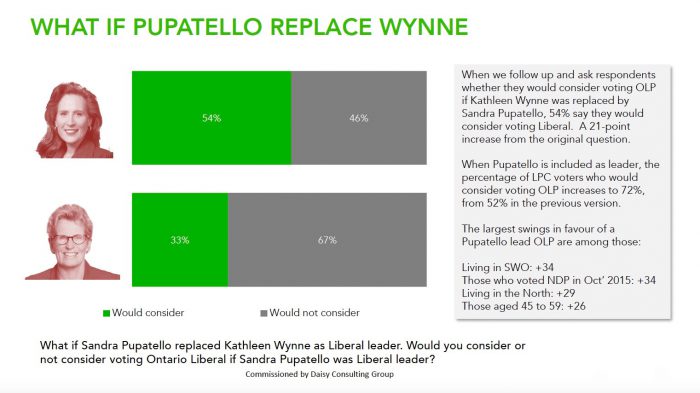
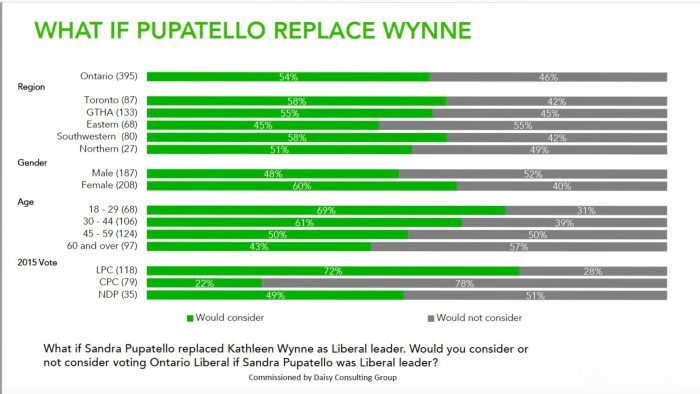
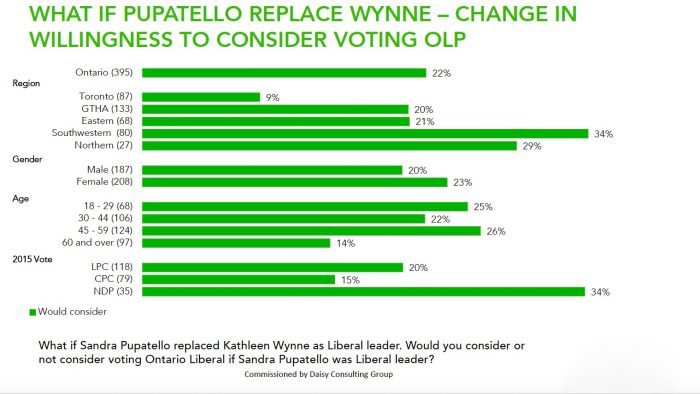
The story is now in Buzzfeed (straight up). Bonokoski did a (way too gleeful) column for the Sun, but it’s now 404.
“Handled”?
